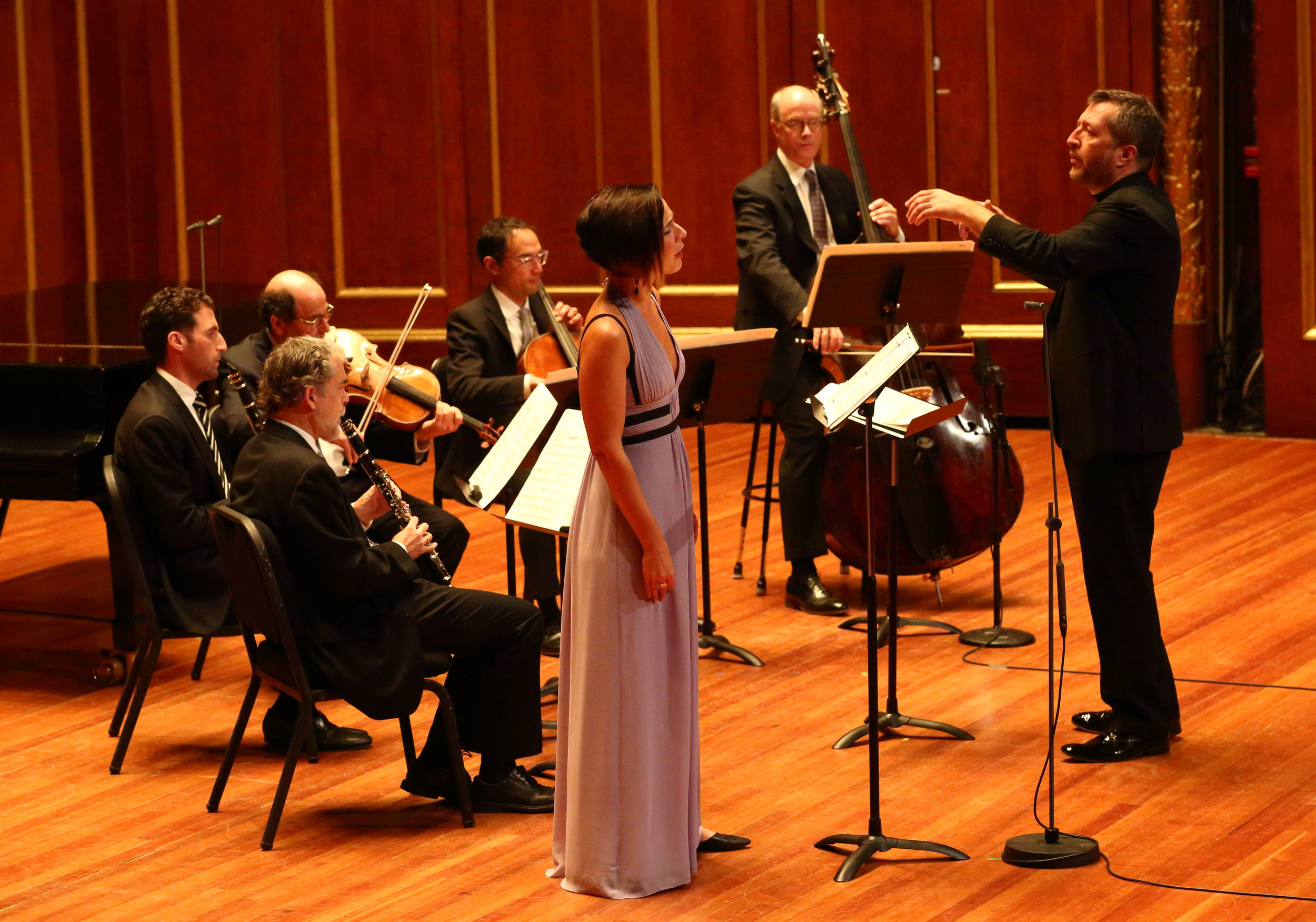Ian Bostridge, and the Vernacular Aesthetic. "Winterreise," with Thomas Adès, at Jordan Hall.
Tenor Ian Bostridge, with pianist Thomas Adès, sings Winterreise at Jordan Hall, 28 Oct. 2016. Robert Torres photograph.
Re-affirming greatness lies at the heart of a performing artist’s mission. Ian Bostridge showed us how and why in Jordan Hall Friday evening.
Paired magically with Thomas Adès at the piano, Bostridge revisited Schubert’s “Winterreise.” The sold-out room—a sign of what can happen when the Celebrity Series and the Boston Symphony Orchestra join forces in presenting—heard an astonishing account of the German composer’s darkly poignant vision of resignation and love.
But not a typical one. The music and the mood created by Schubert run deep enough for performers to simply stand and sing the score, and achieve success. Bostridge couldn’t be bothered with that.
Swaying and pacing, grimacing, enunciating with nearly foul diction, whispering and shouting, Bostridge painted his own personal portrait of Schubert’s broken wanderer—“Fremd bin ich eingezogen, fremd zieh ich wieder aus.”
By his own account Bostridge has been singing “Winterreise” for three decades. His meandering book-length account of the song cycle, the recently published (and aptly titled) “Anatomy of an Obsession,” breaks each of the 24 settings of poems by Wilhelm Müller down into tiny bits of information—musical and otherwise—detailing Bostridge’s own fascination. Such devotion leads to one conclusion—trust this artist.
It was a performance that not only shouldn’t have been missed, but should not be repeated again either. Bostridge’s physically demanding account of the lieder defied the boundaries of refined singing, invoking cabaret style with shouts, inaudible murmurs and drunken diphthongs. Every syllable came alive, and most not so pretty. It’s not a pretty story after all.
Analysis? Why bother. The score creates magic. Adès played and conducted. Bostridge not only posited his own vulnerable portrait, but partnered intuitively, engagingly. It felt like a duet, stretching the boundaries of accepted art-song performance.
The depths of the protagonist in “Winterreise” are uttermost: the cycle begins with “Gute Nacht,” after all. Those depths veer from ironic, to self-pitying, to shocking.
An example: “Das Wirtshaus,” a title Schubert uses to invoke a Germanic symbol of welcome and conviviality. Our wanderer approaches. This “inn” is full, and here he will find no respite. He moves on.
This “inn”? A graveyard.
Performances like this make you wonder who ever invented applause. Bostridge, remaining in character through four curtain calls, wore a look that said, “Did I not just paint a convincing picture of existential despair? What are you so enthusiastic about?”
This program signals the beginning of Adès’s tenure as artistic partner with the BSO. Although this performance will not repeat in Boston, Adès performs Sunday afternoon in Jordan Hall with the Boston Symphony Chamber Players in a program that includes his Court Studies from “The Tempest.” Adès also conducts the BSO Nov. 3-5 in a program that features his “Totentanz” for mezzo (Christianne Stotijn), baritone (Mark Stone) and orchestra.
Tenor Ian Bostridge, pianist Thomas Adès, performing Schubert’s “Winterreise,” at Jordan Hall. Celebrity Series, 28 Oct. 2016. celebrityseries.org; 617-482-6661.





